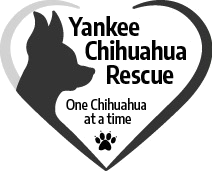
|

 |
iGive.com
Happy Endings Current Events Guest Book |
||
|
Serving the Six New England States |

|
|||

|
FAQ's about Rescue DogsWhy should I adopt from a rescue group?Experts estimate that 10 million dogs per year in the U.S. are euthanized in shelters because no one wanted them, or because overloaded shelters were forced to make room for more dogs coming in. Rescue organizations help reduce the number of dogs being euthanized by getting them out of shelters and fostering them until a new home is found. Foster homes provide training and loving care to help dogs overcome house training issues as well as other behavioral problems and health needs. How long is your waiting list? We keep a list of potential adopters. Because we do not place dogs on a first-come, first-served basis, but rather look for an adoptive home that will be the best match for the dog, the wait time varies. We might have the right dog for you as soon as you apply -- or it may take weeks or even months. But finding the perfect dog for you is well worth the wait. Where do "Rescue Dogs" come from? Rescue dogs come from a wide variety of sources. The dogs may be from shelters where they were brought as a strays or by their former owners. The most common reasons for dogs to be surrendered to a shelter or rescue group are these:
We have a strong foster care program instead. Our goal is to keep or get Chihuahuas out of shelters and into nurturing foster homes immediately. Dogs experience many of the same emotions as humans, such as stress, loneliness and depression. Chihuahuas are a companion animal. They do not fair well cut off from human contact, we avoid having to put a rescue Chihuahua into a kennel environment. We don't list the dog's location on our website. Potential adopters are not limited by where the dog is being fostered. We have many volunteers to help transport dogs. If there is a dog you are interested in, please submit an application for the foster parent to review. Do you ever place Chihuahua mixes? Absolutely! We are dedicated to finding homes for both purebred Chihuahuas and chi mixes. Aren't rescue dogs usually abused and/or neglected, and doesn't this make them dangerous? Absolutely not! Many dogs come to rescue from loving homes because their owners' situation changed. Others were simply not the right match for their homes. Dogs from abusive or neglectful homes are enormously grateful to find themselves in a responsible, loving home. That gratitude can turn into a very special bond of love and loyalty. Many new owners report their dog seems to know what has happened and is all the more attentive and loving because of its former situation. We do not accept or place dogs that are temperamentally unsafe or have shown aggression towards people. Do you have dogs available now? Yes. We almost always have dogs available, though we can't guarantee we have the right dog for you just now.. Do you have puppies? Very rarely, but it does happen. Most all of the dogs we handle are 2 years old and up. How many dogs do you place a year? On average, we place about 20 to 25 dogs a year. Why can't I breed my rescue dog? The existence of rescue is a testament to the fact that there are too many dogs. For this reason, all responsible rescues spay or neuter dogs unless there are medical problems that prevent it. Dog breeding should be undertaken only after thorough education about the breed, its potential health issues, and the art and science of being a responsible breeder. If done correctly, breeding dogs is rarely a money-making venture. How much does it cost to adopt a rescue dog from YCR? Rescuing and re-homing dogs costs money. There is an adoption fee which is commensurate to the size and/or age of the dog. (Please see the cost matrix for all dogs on our adoption page.) This is considerably less than our usual cost to spay or neuter a dog, bring it up to date on vaccinations, test for heart worm, and treat any medical problems, which can be as high as $700.00. Some of our dogs require major surgery or rehabilitation. Our adoption fee may seem high, but it is much lower than the average cost that we spend per dog. (Costs include but are not limited to: spaying/neutering, vaccinations and heart worm testing; micro chipping; monthly heart worm and flea preventative; shelter transfer fees; gas purchases for transport to vets) Am I responsible for all medical expenses once I adopt? Yes, once you adopt a dog from the YCR, you are entirely responsible for all care the dog requires. When you adopt one of our rescues, your adoption contract will state all vet care the dog has received to date and when he/she is due for annual shots or future care. What screenings are done on the dogs? Every dog in foster care is screened for temperament and medical issues. Our Chihuahuas are spayed/neutered, tested for heart worm and other parasites, treated if necessary, and brought up to date on their vaccinations prior to being placed in loving forever homes. Why do you have to visit my home? The home visit provides us with an opportunity to meet you in person. We can usually find a volunteer in your area to come and see you. We have a chance to talk with you and see the home where the dog will be living. You also have the chance to learn more about our rescue. Many times, the volunteer brings their dog along, giving you the opportunity to see a Chihuahua in action. If I submit an application for a specific dog, will that dog be held for me? TCR does not hold dogs for any reason. There may be many people considering the same dog for adoption. The dog will be adopted by the first approved adopter who can provide the best home that the dog needs to be successful. Why do my own dogs need to be spayed or neutered before I can adopt? There are just too many homeless animals out there. Spay/neuter surgery is a one-time cost with so many long-term benefits.
One out of every four pets in shelters today is a purebred. If you can't afford this surgery, then you probably can't afford to adopt another pet. Do you adopt to states out side of New England? Our policy is that we only adopt to homes in the New England region (Maine, New Hampshire, Vermont, Massachusetts, Connecticut, or Rhode Island). We have instituted this policy due to problems with long distance adoptions, coordinating Home Visits, and the issues of following up on adoption. . Can I return a dog that I adopted from YCR? We require that dogs be returned to YCR if the owner finds out that they can no longer keep the animal for any reason. This requirement is for the lifetime of the dog. If the dog is being returned due to a correctable behavior problem, we may offer to pay for a session with a behaviorist to see if the problem can be overcome. It is our feeling that the Dog should be given every chance to succeed in its new home. Also, we like to believe that our adoptive owners are committed to making their new relationship work. We want to provide our adoptive parents with any support that we can. What if I have questions after I adopt a dog? While we do our best to place dogs in homes where they can be successful, there is usually an adjustment period after the dog comes home. The Foster Parent and YCR directors are always willing to answer your questions and help you with any concerns. How can I help? There are many ways to get involved with YCR. Donations are ALWAYS welcome and those donations help us keep afloat. Foster homes are also needed around New England and in Long Island NY. Other tasks that we need help with are transportation, home visits, letter writing, fundraising, and publicity. Send donation checks to: Cheryl Boucher 3 Ferguson Lane Sandown NH 03873 I want to get on your adopter list, what do I do now? You can fill out an application here. |
|
||

|

|
|||